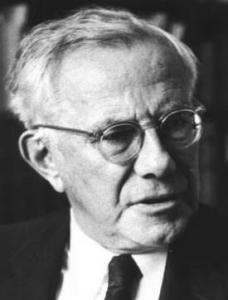Paul Tillich and “Theonomous Culture”
*Note: If you choose to comment, make sure your comment is relatively brief (no more than 100 words), on topic, addressed to me, civil and respectful (not hostile or argumentative), and devoid of pictures and links. Do not misuse my blog to promote your own, alternative worldview, philosophy or theology. Feel free to express disagreement kindly but give reasons.*
By all accounts Paul Tillich was a liberal Christian and a liberal thinker generally. He was a leader among Christian socialists in Germany which is why he was forced to flee to America in the 1930s.
Tillich described three kinds of cultures: heteronomous, autonomous, and theonomous. According to him, every culture leans in one direction or another.
According to Tillich, a heteronomous culture is one in which a single person or party determines what people can think and express; it is totalizing (to use a more postmodern term). He was thinking, of course, of Nazi Germany but also of less obvious “top-down” cultures in which some powerful elite group dictates what is permitted in terms of life and thought.
According to Tillich, an autonomous culture is one in which everyone does what is right in his or her own eyes, a culture without a center or foundation, an individualistic culture that lacks the basis for community. He was thinking, I believe, of the direction in which he saw America moving.
According to Tillich, there is an alternative to heteronomous culture and autonomous culture. He called it “theonomous culture.” For him, a theonomous culture is one in which there is a generally recognized divine or transcendent source, center and foundation that makes the culture also a community (unity with diversity). For him, of course, this would be biblical religion—at least for Western cultures. Anyone who knows anything about Tillich knows that his idea of “biblical religion” would be extremely thin in terms of doctrine. And, for him, of course, no religion would be imposed; it would be implicit, embedded within the culture without force or coercion.
What specific culture did he have in mind? I don’t know; perhaps he thought of it as an ideal rather than something specific within history (so far). General, even public, acknowledgement of “Being Itself,” the “Ground of Being?” In any case, something both transcendent and immanent. Not a denomination or even specific religion but a vision of “the good” rooted in something/someone eternal. Perhaps Plato’s “the Good” but more personal (for Tillich “supra personal”)? Perhaps only “In God We Trust?” But certainly thicker than “do whatever feels good.”













